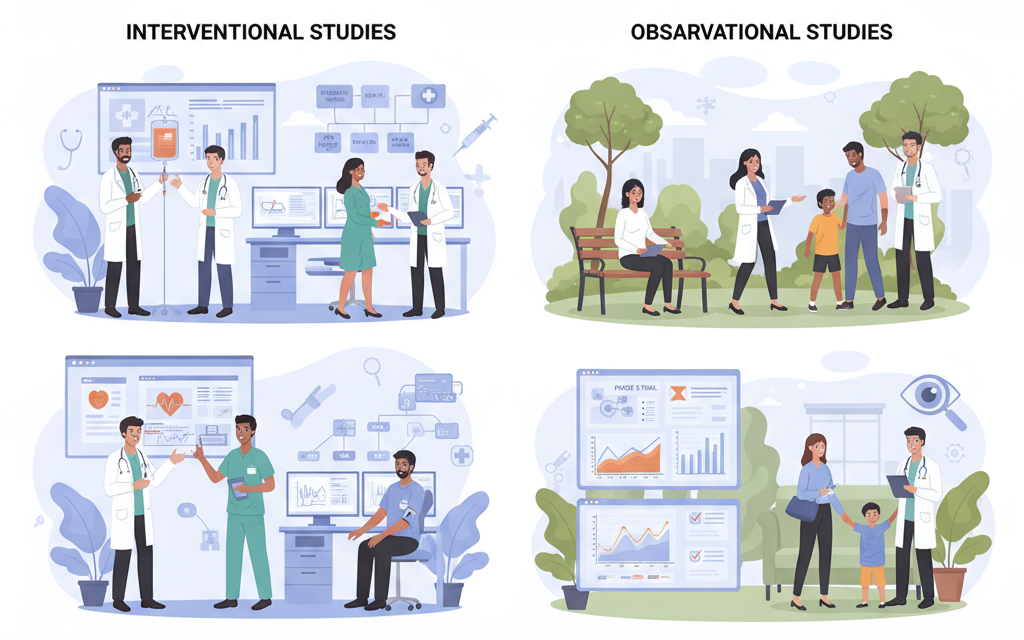What are clinical studies?

Clinical studies are systematic research investigations involving human participants to assess the safety, efficacy, and performance of medical, surgical, or behavioral interventions. They play a vital role in evaluating new treatments, drugs, medical devices, diagnostic tools, and preventive strategies before their widespread use. By generating evidence-based insights, clinical studies contribute significantly to advancing medical science, shaping healthcare guidelines, and improving patient outcomes through safer, more effective, and innovative approaches to disease management and overall healthcare.
There are two main types of clinical studies:
Clinical Trials (Interventional Studies):
In clinical trials, researchers actively assign participants to specific medical interventions, such as new drugs, treatments, or procedures, to study their effects. These interventional studies aim to evaluate safety, efficacy, and outcomes, providing evidence for medical decision-making and regulatory approval.
Observational Studies:
Observational studies involve monitoring participants without changing their usual routines or treatments. Researchers collect and analyze data on behaviors, exposures, or outcomes, aiming to identify patterns, associations, and trends, which help inform public health policies and medical understanding without direct intervention.

Objectives of Clinical Studies

Evaluate Preventive Measures: Study vaccines, screenings, or lifestyle changes that could prevent illness.
Test New Treatments: Assess drugs, vaccines, therapies, or procedures.
Improve Current Treatments: Compare new treatments with existing standards.
Understand Disease Progression: Track health changes over time in specific populations.
Identify Risk Factors: Examine environmental, genetic, or lifestyle-related factors influencing health.

